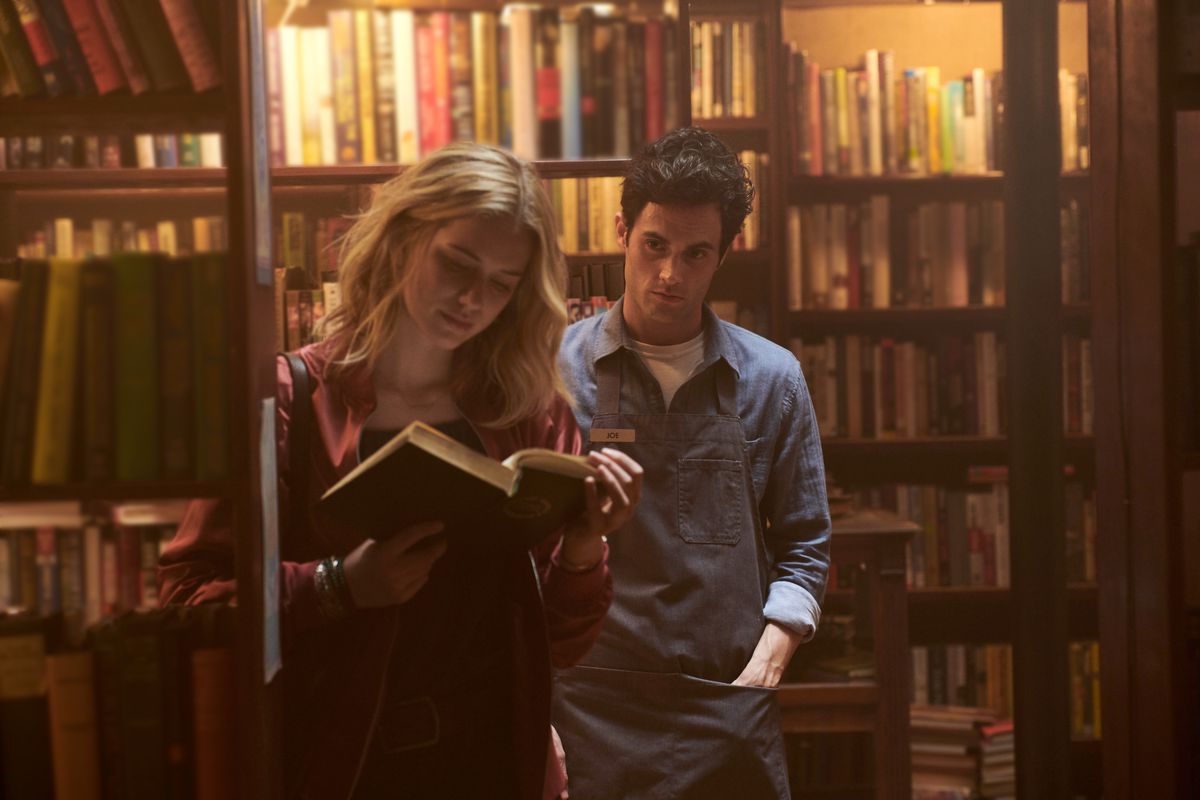In ‘You,’ Netflix Makes Stalking Seem Pretty Charming

Credit to Author: Manisha Krishnan| Date: Fri, 04 Jan 2019 19:05:14 +0000
Warning: this article contains spoilers about You.
If you’ve haven’t yet seen the Netflix show You, you might be forgiven for thinking it’s more of an intense romance than a murderous rampage.
“A clever bookstore manager relies on his savvy Internet know-how to make the woman of his dreams fall in love with him” says the show’s IMDB bio while Rotten Tomatoes describes the plot as being about a “tech-savvy young man” who “utilizes modern-day resources to lure a woman into falling in love with him.”
One of Netflix’s trailers for You, called “Love,” features a montage of the show’s two young, attractive leads, Joe Goldberg and Guinevere Beck, passionately hooking up. Joe’s voice can be heard saying, “Sometimes it scares me to love someone so completely.”
But the show, based on the novel by Caroline Kepnes and adapted for Netflix by Greg Berlanti (Riverdale) and Sera Gamble (Supernatural), has very little to do with love—and everything to do with controlling, obsessive, psychopathic behaviour. Having binged the whole thing in a couple of days—it is addictively salacious—I think Netflix should have drilled home that point harder. Stalking is a serious issue that deserves more mainstream attention, especially given how frequently it happens to women, but unfortunately You makes several irresponsible missteps in its portrayal of this story. It manages to romanticize stalking, while simultaneously creating empathy for the perpetrator Joe and frustration with the victim, Beck.
Joe (Penn Badgley) is a bookstore manager in New York City, and Beck (Elizabeth Lail), one of Joe’s customers, is an aspiring writer and master of fine arts student. When Beck uses her credit card to make a purchase at Joe’s shop, he takes it as an invitation to creep the shit out of her, and quickly begins tracking her every move while facilitating “chance” run-ins to make her fall in love with him. And his plan mostly works, until people in Beck’s life start getting in the way, at which point Joe (spoiler alert) kills them.
For the most part, the viewer is in Joe’s head, subject to his endless internal monologue. This device is part of what makes the show so intriguing. The problem is, we mostly only hear Joe’s version of events, and almost never what’s going on from Beck’s perspective. There’s nothing to challenge his assertions that Beck chooses men based on their clout, that her open social media presence is an invitation to stalk her, that she has shitty taste in friends, and that she needs Joe to save her from her mess of a life.
What we do see is Joe cooking for her, doing her chores, putting up with her friends, encouraging her to write, giving her a job, all seemingly out of love. We’re left unaware of whether or not Beck finds any of his behaviour over the top or smothering.
Joe also gets the benefit of a back story. He had an abusive childhood and now spends a good chunk of time trying to help out his kid neighbour, who is also growing up in an abusive home. What a good guy. We do find out a bit about Beck’s father, a former addict, but Joe catches her lying about him to the world, erasing some of the empathy we might otherwise have for her.
And then of course, Beck cheats on Joe with her therapist, securing her status as a slut. Never mind the fact that this happens after Joe kills one of her best friends, because we only hear Joe’s side of things, it’s easier to empathize with his feelings of being betrayed than her grief.
In the end, maybe Beck got what she deserved, right? Well, no. But the show’s portrayal of her as equal parts social climber, gold digger, and liar, seem to push audiences toward that conclusion.
Stalking is criminal behaviour that often has deadly consequences. One UK study found that stalking was identified in 94 percent of homicides researchers reviewed. But it’s often dismissed by the victim’s family, friends, and even police as romantic.
You had a great opportunity to tear down that stereotype, but instead managed to perpetuate it.
Follow Manisha Krishnan on Twitter.
Sign up for the VICE Canada Newsletter to get the best of VICE Canada delivered to your inbox.